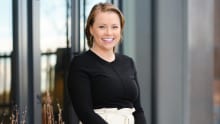Accepted: How innovative business models are transforming the corporate world

Amid the continued disruptions, geopolitical and social changes in the world of work, the World Economic Forum’s Future of Jobs Report 2023 states that employers anticipate 69 million new jobs to be created and 83 million eliminated in the next five years. But in spite of these challenges, businesses are looking to thrive and diversify for growth.
The goal for every organisation then is to learn and make better decisions than the ones being made right now. The entire workplace, including organisations, employers, employees, customers and stakeholders are desperate to find the right solutions. Amid the gloom and doom, one can’t help but wonder how desperation can be a catalyst to some of the best business ideas.
Almost two decades ago, Accepted by filmmaker Steve Pink hit theatres in 2006, giving a sense of hope to all those left dejected by college rejections. With that as the central theme, the film narrates the story of Bartleby Gaines, a high-school slacker rejected by every school he applies to and how he opts to create his own institution of higher learning, the South Harmon Institute of Technology. While it might sound like the story is not relevant for the corporate world, each instance in the film depicts otherwise.
Closing The Gap
Now, Gaines, who is not the smartest of the cookies, in the beginning of the film realises the gap in the education system and is determined to address it. His ‘Let’s Figure This Out’ attitude helps him come up with a way to include the students that are left behind by the system. And isn’t it what all talent acquisition leaders are doing today - tapping into new and unexplored hiring pools and bringing back veterans and women, while adding immigrants and refugees. The intent is to uphold the ideals of DEI but at the same time, recognise potential. After all, the shift is towards “Skills over degrees”.
Choosing The Role
On the quest to create a curriculum, he visits a well-established college but comes across students who are stressed, anxious and fearful of the mid-terms and don’t have the choice to pick out their favourite subjects because of the Major they might have chosen. This is eerily similar to what we witness today. Across the multigenerational workforce, the stress, anxiety and exhaustion levels are off the charts, making it necessary for organisations to invest heavily in wellness, wellbeing and care programs. Leena Nair, Global CEO, Chanel, has always reinforced this lesson, “When you look after your people, they will look after the business”.
With an increasing focus on internal mobility and sponsorship, employees are able to see themselves in diverse roles, the ones they could never fathom before. So much of finding the right person for the right role also rests on empowering them with the best work culture and ample growth opportunities.
Honing The Skills
With the realisation that he needs to do things differently, Gaines asks each and every student in his college to write what they wish to study. No matter how crazy it sounds, he urges them to voice out their passions and strengths. And that’s what all organisations are aiming to achieve with their L&D programs - upskilling employees so they are able to hone the skills of the future and align them with the skills of their past. Or as they say, marry human skills with machines. At the end of the day, this calls for recognising employee aspirations and enabling them to take ownership of their learning journeys.
Challenging The Business Model
While Gaines decides to create an institution that has its roots in innovation, he is challenged by a legacy college for his abstract ideas and designs. Now, when such a situation arises, you can either stick to the old ways of thinking or you can start experimenting. As Jeff Bezos, Founder, Amazon explains, "If you double the number of experiments you do per year, you’re going to double your inventiveness." As organisations begin to design innovative business models, they can start small with a control group, interpret and analyse the results and build on those learnings.
In the end, Gaines’ speech might be a little overboard but there is certain truth in it. Every organisation is trying to emulate its competitor to stay ahead. But sometimes, finding your own path might take a while and might even cost you, but it just may take you farther ahead than you ever thought possible. As Bartleby Gaines says, “Why should you conform?”
If you look at some of the best business model innovations such as Netflix, The Walt Disney Company, Amazon, Spotify and Kodak, you will understand that when you stop limiting yourself, that’s when true innovation happens. That's when you unlock the art of the possible, and explore exciting ways to lead your enterprises and your workforce in the evolving world of work.
To take you closer to these lessons and set you up for success even amid disruptions, we have curated insightful sessions at People Matters TechHR Singapore on August 24 at Marina Bay Sands. This year’s speaker list includes Jacob Morgan, Michael Kim, Peter Hinnsen, Yvonne Tan and Joydeep Bose, among others. So, register now!
















